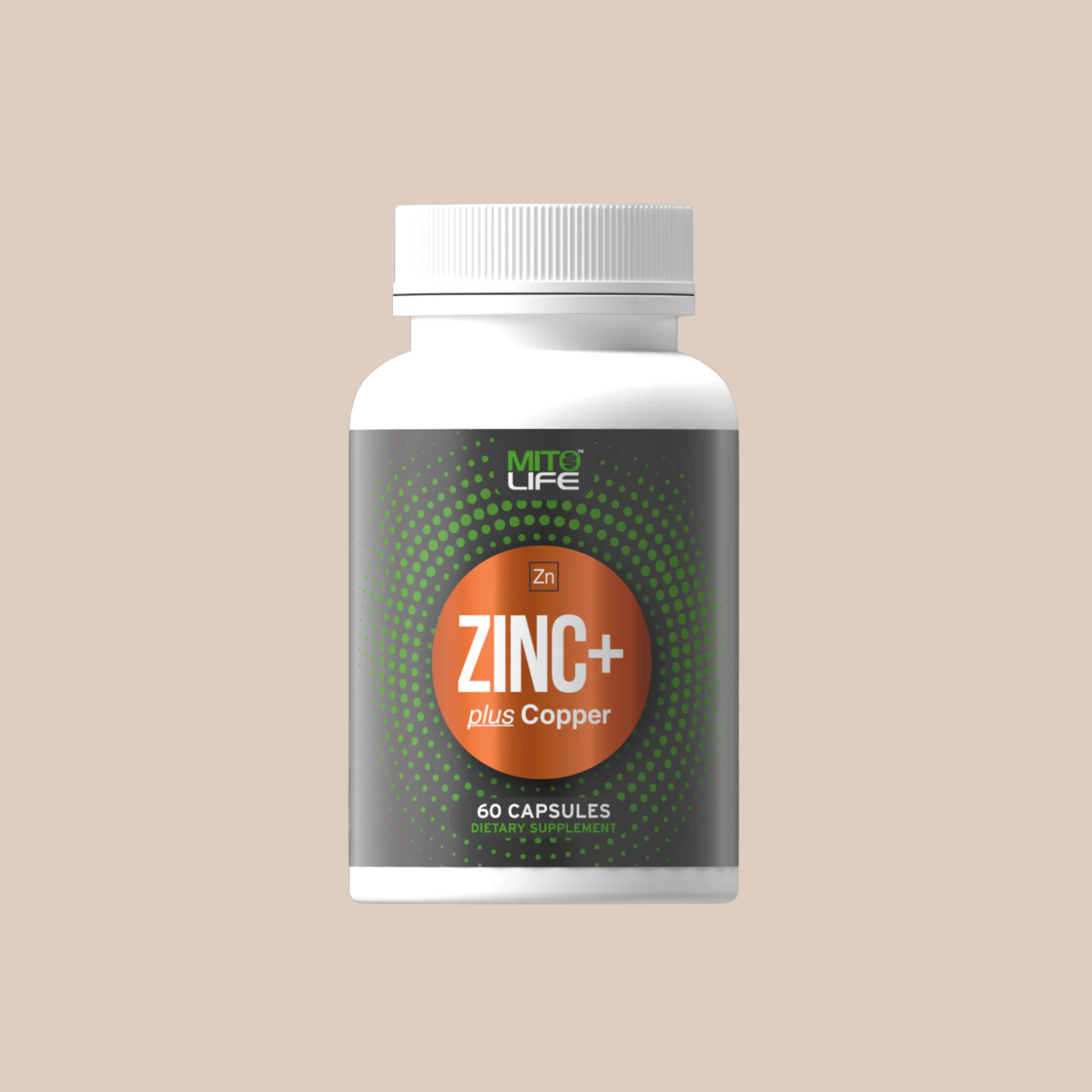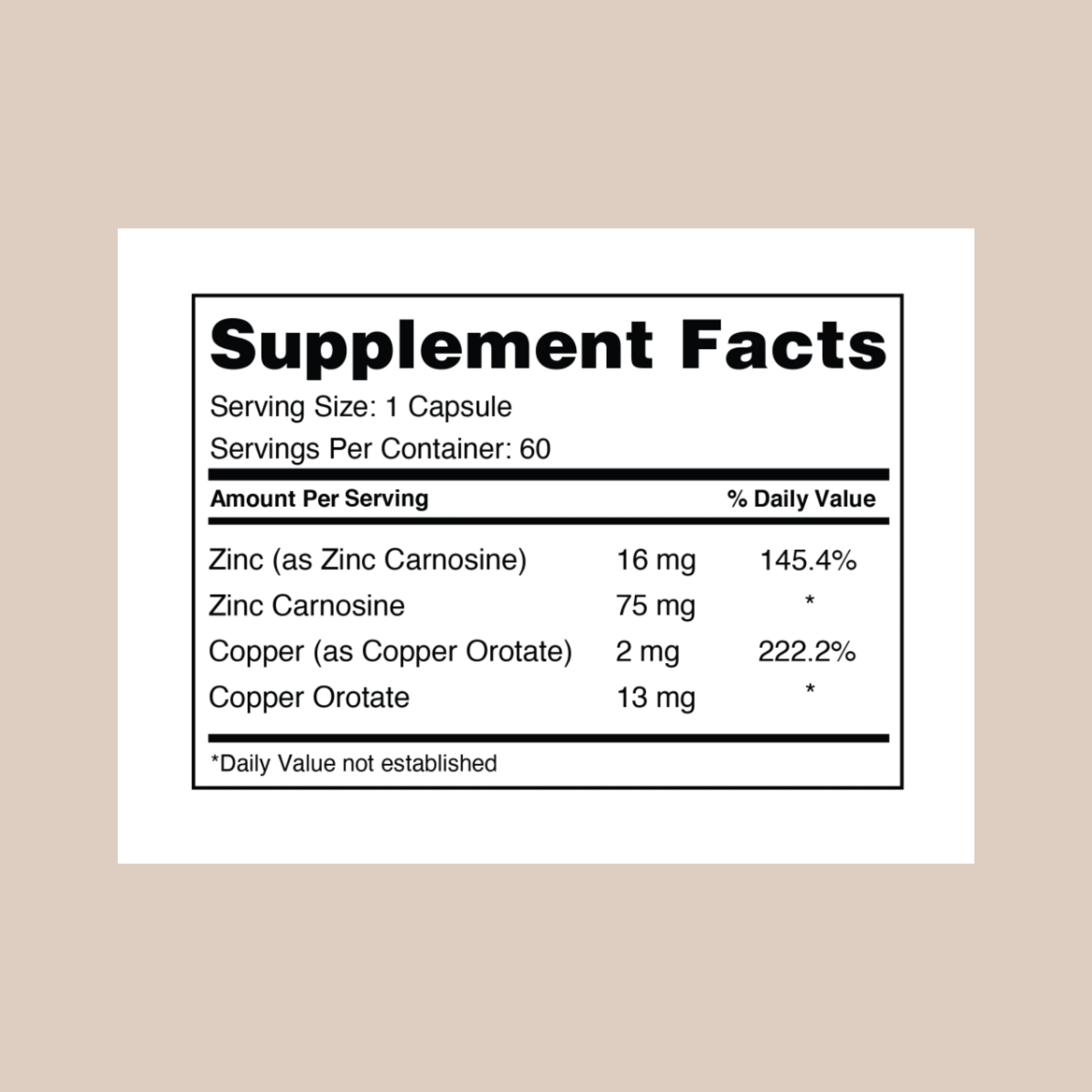

Zinc+ (With Copper)
Zinc and copper are essential nutrients that regulate several processes in our body. They affect our mood, our immune health, our digestion, our brain health, our genetic health, and more.
There is a balance between copper and zinc called the Cu:Zn ratio. Too little zinc and too much copper can explain some neuropsychiatric conditions like autism and schizophrenia.
Zinc levels should always be higher than copper because zinc is the second most abundant metal in the body after iron. Although copper is third most abundant, the concentration in tissues between both is an order of magnitude difference.
The body stores around 2 to 4 grams of zinc while it only stores 75 to 100 milligrams of copper, mostly in the liver. The body devotes about 10% of all of its genes to zinc-binding proteins which is mind boggling.
The correct ratio of both copper and zinc is important. In Zinc+ there is 16mg of zinc per 2mg of copper. This is the ratio that is physiologically in line with how the body prefers the micronutrient ratio.
The forms of zinc and copper come in bioavailable chelates that are quickly absorbed and distributed to the right tissues and more importantly show no competition with each other.
The ratio and high bioavailability supports the function of the Zn-Cu-dependent enzyme superoxide dismutase. This is one of the most powerful antioxidant enzymes in the human body.
Benefits:
- Elevated antioxidant response.
- Improved immune system function.
- Improved cognitive function.
- Increased defense against non-essential heavy metals.
- Improved cell regeneration.
- Reduced NMDA receptor activity.
- Enhanced collagen synthesis.
- Increased mitochondrial function and ATP production.
- Prevention of mitochondrial electron leakage.
- Enhanced nuclear response to other compounds.
Choose options

